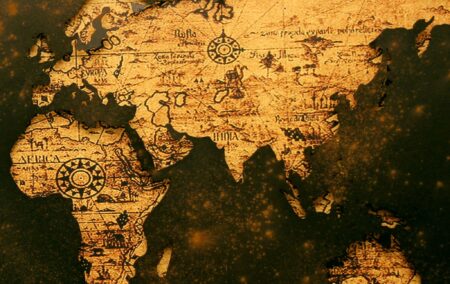The failure of most of post-colonial Africa has nothing to do with race, but rather everything to do with geography.
When the European colonialists came to southern Africa, they brought writing, the wheel, Christianity, modern engineering, and legal and financial systems. Many of these ideas and inventions, however, actually had their origins in the Middle East and India, but it was the Europeans who brought them to Africa.
Farming, the most important revolution, began about 10,000 years ago. It led to food surpluses and to classes of people being freed from a subsistence existence, and from priests, magicians and omnipotent kings. It allowed people to measure food stocks and writing provided a way to record them. Science, engineering, and financial systems followed. Jared Diamond, in “Guns, Germs and Steel”, explains why this first happened in Eurasia and not Sub-Saharan Africa. (Eurasia embraces Europe and Asia. North Africa was part of Eurasian civilisation.)
First, there were certain plants in Eurasia, such as wheat, barley and rice, that could be cultivated, and certain animals, such as horses and cattle, that could be domesticated. None of these existed in most of Sub-Saharan Africa. Second, Eurasia lies from west to east, with the same climate zones running throughout its length, so that a crop developed in one area, can easily spread to other areas. Africa lies from north to south, with different climate zones, preventing the spread of crops.
Asia had prior to that comprised far more sophisticated civilisations than Europe prior to the 15th century. China invented paper-making, movable-type printing, gunpowder, the compass, alcohol, the mechanical clock, tea production, silk, the umbrella, iron smelting, porcelain, the seed drill to promote even plant growth, row crop farming, the toothbrush and paper money – all between the 6th century BCE and 1498.
India was the other great Asian power and began its decline in the 18th century. The great empire in Asia, the Muslim Ottoman Empire which ruled for over 700 years, started to decline in the 19th century.
The great monotheistic religions originated in the Levant and the Ottoman empire ruled over much of Europe for over 7 centuries. Mathematics in its evolutions was developed at various times by the Mesopotamians, Egyptians, Chinese, Indians, Greeks and others.
However, China lost its predominance from before the 15th century, while Europe took over as the centre of innovation and discovery. So for the past five centuries Europe gained a huge advance over Asia.
Africans regarded the European invaders with a combination of loathing and admiration. On the one hand they wanted to expel them; on the other they wanted to take on some of the practices and acquisitions of modernity which could change their lives.
When the Europeans decolonised Africa it coincided with the cold war and many African governments, as in most of Asia and Europe, adopted authoritarian solutions, inter alia, in a flawed gesture of resistance to oppression. One could certainly accuse Africa’s ruling elites of not reading enough history.
Many countries drifted into the embrace of marxism and socialism provided by the Soviet Union and China in order to spread their influence. One of the disastrous results was experimenting with nationalisation. Institutions such as the railways, roads, mines, harbours and hospitals became subject to the “political kingdom” (in Nkrumah’s famous phrase). The theories of successful economies, how the economy makes wealth and encouraging productive people and systems, were disregarded for ideological and historical governance reasons.
Another disaster of socialism world-wide has been the failure of collectivised farming, which led to inevitable crop failures and hunger.
The state of inherited enterprises was often taken for granted. So maintenance was mostly neglected, to which much crumbling infrastructure attests. The desire for political control leads to massive bureaucracies and complicated regulation.
In the South African context, Eskom is an example. It was generally successful because the National Party Government simply left it alone. Eskom also had to provide electricity to far fewer people and industries. The ANC regarded Eskom as a generator that would always produce sufficient electricity and, therefore, became a site of wholesale capture and corruption, used for whatever political purpose that was wanted. So we had BEE coal procurement, the ruining of the coal stations, neglected maintenance, failure to build stations when needed, and massive employment of poorly qualified and inexperienced staff to promote racial transformation.
ANC politicians betray the people by providing failing or failed public services, while they themselves use good quality private institutions. The ANC intends to push for a National Health Insurance, which is supposed to but won’t give everyone high standards of health while retaining the bad state managers that have wrecked state health. No doubt if NHI does happen, they will follow Robert Mugabe’s example and go overseas for their own medical treatment.
Andrew Kenny is an engineer, a writer and a classical liberal

